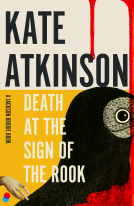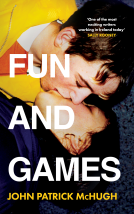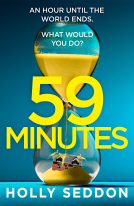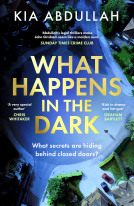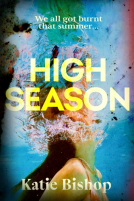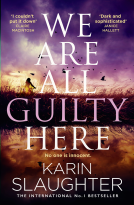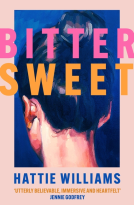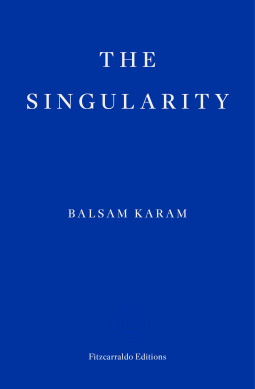
The Singularity
by Balsam Karam, translated by Saskia Vogel
This title was previously available on NetGalley and is now archived.
Send NetGalley books directly to your Kindle or Kindle app
1
To read on a Kindle or Kindle app, please add kindle@netgalley.com as an approved email address to receive files in your Amazon account. Click here for step-by-step instructions.
2
Also find your Kindle email address within your Amazon account, and enter it here.
Pub Date 17 Jan 2024 | Archive Date 10 Jan 2024
Talking about this book? Use #TheSingularity #NetGalley. More hashtag tips!
Description
In an unnamed coastal city home to many refugees, a mother of a displaced family searches for her child, calling her name as she wanders along the cliffside road where her daughter used to work. She searches and searches until, devoid of hope and frantic with grief, she throws herself into the sea, leaving her other children behind. Bearing witness to this suicide is another woman – on a business trip from a distant country, with a swollen belly that later gives birth to a stillborn baby. In the wake of her pain, the second woman remembers other losses – of a language, a country, an identity – when once her family fled a distant war. Lyrical and devastating, The Singularity is a study of grief, migration and motherhood.
For fans of Minor Detail by Adania Shibli, The Furrows by Namwali Serpell, and Wandering Souls by Cecile Pin.
Advance Praise
‘To read The Singularity is like drinking directly from a flood of tears.’
— Aftonbladet
‘The Singularity is a novel that appears to have been created from dark matter, elusive, giddying and with an enormous linguistic and narrative density.’
— Expressen
‘Balsam Karam’s language is entirely her own. It is poetic and suggestive.... The Singularity is a journey into a black hole. A point of no return.’
— Jönköpings-Posten
‘I cannot recall anyone else in contemporary Swedish literature who writes like Karam.’
— Svenska Dagbladet
Available Editions
| EDITION | Paperback |
| ISBN | 9781804270813 |
| PRICE | £10.99 (GBP) |
| PAGES | 194 |
Available on NetGalley
Featured Reviews
Wow, that was heartbreaking. One review of this novel says it was like drinking teardrops. I disagree, it was more like injecting teardrops and drinking teardrops all the while bathing in teardrops.
If you fancy having your heart broken into pieces, then here's how......
I loved the intentions and politicised stance of this work but somehow the writing felt too lax and slightly disconnected to have the visceral effect that I expected. I also felt the shifting voices worked against the intensity of the piece as there were too many resting places for me as a reader and I wanted to feel the tension racheting up without the opportunity for escape.
This is still a powerful book that humanises the refugee/migrant situation in a way that is being increasingly diluted by our venal Tory government - I'd like to see this book in many hands even if it wasn't quite the impactful piece of writing that I expected. 3.5 stars rounded up.
The Singularity is an upcoming novel by Balsam Karam and published by Fitzcarraldo Editions, publishers known for quality literature. Scheduled to be released in January 2024, this book has already garnered anticipation.
The narrative unfolds in an unnamed city amidst refugees, focusing on a mother in relentless pursuit of her lost child. What sets this story apart is its unique focus on the female perspective, offering insight into their challenges and experiences. The ambiguity of the time and place setting add an intriguing layer to the plot. The struggles depicted are eerily reflective of our contemporary era, blurring the lines between past, present, and future.
With that being set, I found myself grappling with the narrative's flow, struggling to discern the narrator and track the characters. The story seemed elusive and enigmatic, maybe it was too smart for me. It's evident that this book possesses multiple layers, and an another reread might unveil different dimensions.
Although this wasn't one of my personal favorites for this year, I acknowledge its potential to be nominated for the Booker International Longlist for 2024. Balsam Karam is an author I would definitely read more from.
 Reviewer 854813
Reviewer 854813
This was a really profound read that will probably stick with me for a while. Beautifully written with a solemn tone, definitely don't recommend this one if you're going through a tough time!
 Pietro O, Reviewer
Pietro O, Reviewer
With many thanks to NetGalley for the advance copy. A fascinating experimental short novel that maintains a consistent narrative tension. Highly recommended!
 Reviewer 1257102
Reviewer 1257102
Balsam Karam's upcoming book The Singularity will be published by Fitzcarraldo Editions, a reputable publisher of high-caliber books. This book, whose release date is set for January 2024, has already generated interest.
The story takes place in an unknown city filled with refugees and centers on a woman who is devotedly searching for her missing child. The distinctive emphasis on the female perspective in this novel, which provides insight into their difficulties and experiences, makes it stand out. The plot gains a fascinating layer from the setting's uncertainty in terms of time and place. The distinction between the past, present, and future is muddled by the battles shown, which are uncannily reminiscent of our own day.
After that was established, I struggled to understand the narrative's structure, identify the narrator, and follow the characters. The plot seemed obscure and mysterious; perhaps it was too sophisticated for me. It is clear that this book has many levels, and a subsequent reading can reveal new depths.
 Reviewer 876149
Reviewer 876149
The intense second novel from Balsam Karam, a children’s librarian, and Swedish writer of Kurdish ancestry. Atmospheric and elegiac, this is less conventional narrative than a series of snapshots centred on immense loss, displacement, and generational trauma. Karam's main characters are two women who are divided yet ultimately irreparably connected. One is a pregnant woman on a business trip, she’s travelled from Europe to a distant seaside resort. The nameless resort hosts wealthy, mostly-white, tourists who spend their time in its newly-built luxury hotels and upmarket restaurants close to the corniche, a winding road separating land from sea. As the visitor walks near the shore, she witnesses a woman throw herself into the water. This dying woman is a refugee, a mother who, together with her children and own mother, has been living in a makeshift tent, in a rubble-strewn, bullet-marked alley. A futile search for her missing oldest daughter has led to total despair. It’s not clear what’s happened to this teenage girl. Was she captured by the predatory men who haunt the local streets? Or did she attend a demonstration and fall foul of local authorities? Meanwhile, once again at home in Sweden, the businesswoman refuses to allow her now-dead child to be induced, convinced refusal can somehow break a wider cycle of grief and disappearance.
Karam’s narrative is plotless, rhythmic, and repetitive, sometimes literally, sometimes metaphorically. Images surface and resurface, as with the slowly-fading children abandoned in the alley, whose overlapping voices act like a chorus or song of mourning. As the setting moves to Sweden, Karam uses slashes / to distinguish between immediate reality and memory, as the Swedish woman drifts between her present in a hospital ward and visions of her childhood friend Rozia who died in war. The style changes again, as she begins to recall her family’s arrival in Sweden as political refugees in search of asylum: their struggles with racism, and attempts to adjust to a culture that refuses to meet them halfway. Karam is partly drawing on her own history here - the woman’s mother bears scars from torture that closely resemble those of Karam’s activist father; and the trauma of stillbirth echoes Karam’s own. Karam binds her fragmented episodes by invoking the idea of a black hole in which absence of gravity forces bodies together, removing the spaces in-between. Somewhere between fiction and prose poetry, I found this incredibly compelling, affecting and deeply felt. Translated by Saskia Vogel.
 Liz B, Reviewer
Liz B, Reviewer
Published 17 January 2024. This is an almost haunting novel with no joy but with phrases that move you. It is the story of two women and is told from the female perspective. One is a pregnant young woman on a business trip who witnesses the second woman in our story through herself into the sea. The woman who killed herself is a refugee who is, with her mother and her children, living a tent at the bottom of an alley between buildings that are riddled with bullet holes. Her eldest daughter has gone missing. We are never told the circumstances, we only see the mother's search, we only hear the words of her children as they play in the alley with the rubble, we only feel her despair. Our first woman returns to her home only to be told that her child has died inside her and she refuses to be induced. Inher narrative we switch between past and present as she remembers her own families arrival as refugees into the country and the racism that they had to endure, as she remembers her friend who dies in the war. As i said phrases that move you. I found it difficult at times as the narrative is fragmented as we are taken from past to present to future and sometimes i had to stop and think - whose story is this. But maybe that is the point, maybe the author is trying to show how refugees become faceless and anonymous. An emotional read and one that could make it onto the International Booker list.
"If she stands here long enough – if she stands among the cars, eyes, and hands tightly shut in a prayer so intimate nothing but her wish pushes through – maybe the God who proffered but then took back this child will return it to her."
This sentence alone made me sob, and you can imagine the melancholy. The despondency. The inconsolable.
Told from a mother’s point of view, she’s telling her mournful days after her unbearable sadness of a lost daughter. She keeps roaming at places her daughter has been, crying until her voice is lost in the void.
The story shifted to the 2nd woman, who in parallel, lost her child in stillbirth. Her grief holds her down, and soon she loses everything in her sight; even the soundness of her mind.
Karam’s writing on the tapestry of loss and belongings is so exquisite, a period when human boundaries with their surroundings become more murky or erode, and how griefs shapes our perception. It touches on human fragility, and how hopes are keeping hearts beating.
Recommended if you love A little luck by Cladia Pinero, or you want a good cry, with a twist of poetic proses.
P/S: The scene of the mother asking the phone booth person to immediately called her if her daughter returns the call is just....damn. DAMN.
A very moving look at belonging, motherhood, war, loss, migration and grief.
The book itself is split between the story of a mother searching for her lost grown up daughter who has disappeared (as many others have) after working at a restaurant. This all takes place in an unnamed but war-torn, economically poor country. The second string to the book is the story of a migrant woman expecting her first child. One night she is at the restaurant and sees the first mother, stricken with grief, throw herself to her death. The woman's unborn child is later discovered to be dead inside her.
The two strands come together in the third part of the novel describing the reactions of the young mother-to-be on having being told her baby has died juxtaposed with the story of her moving to another country with her siblings, mother and grandmother.
The descriptions of the mother being told her unborn child had died were difficult to read. Her reluctance to be separated from the unborn baby is extremely emotive.
In fact the whole book gives a description of migrant life that is hard to stomach but worth it. The split stories in the third part may seem confused at first but the way it is written only adds to the story in my opinion. I found it easy to get to grips with even if the subject matter was not easy to read.
Balsam Karam has produced a beautiful but heartbreaking and challenging novel that I'd highly recommend.
Thanks to Netgalley and Fitzcarraldo for the advance review copy.
A highly emotional and unsettling novel which weaves maternal loss and grief from two perspectives, into themes of displacement and survival in extreme circumstances. Much of the story is set on "the corniche", a curving cliff-side road, studded with restaurants and market stalls, popular with tourists, while also providing casual work to some of the migrants and possibly camouflaging the extent of the circumstances the displaced community dwell in.
There is something quite esoteric and abstract about the language the author uses. I'm not sure if this comes down to translation, or if I'm just not concentrating enough, but regardless of the haziness of my understanding of the sentences and structure, I can observe and feel the desperation surrounding these characters.
There's nothing obscure about the business of survival, the urgency to find a missing daughter, the priority of securing enough bread to feed the children, the vigilance required to protect the girls and women and little boys from the greedy leer of the predator.
Perhaps this book is telling us that whatever we see through our white gaze, whatever we imagine we feel as empathy and concern is filtered through our own privileged tinted glasses, so despite the glimpses of prejudice we witness against immigrants, we can never fully understand their vulnerabilities.
Truly impactful.
Publication Date: 17th January 2024
Thanks to #NetGalley and #fitzcarraldoeditions for the ARC
The Singularity by Balsam Karam is a provocative and experimental novel about loss, identity, memory, and race. Through lucid, dreamlike prose Karam navigates these themes through three stylistic sections.
I really struggled with the first half of the novel. I found the disconnected writing style and purposeful blending of narrator voice distracting. It felt difficult to locate a steady rhythm within the inconsistent organising principle of each chapter.
However, I did find the lack of individual identity throughout the novel interesting: all the children as one voice, the missing girl named "the missing one", and the counsellor's ever changing name between one generic male name to another. I especially enjoyed how the children's singular and aware dialectic voice represented their experience. It reminded me of Donald Barthelme's short story, The School, where its children equally had that mature and all inclusive voice.
In addition, I loved the second half of the novel which consisted of lethargic, fragmented flashes between its two styles. The second style felt fresh compared to the stifled opening. I loved the back and forth between the narrator's present and past memory. Karam used /'s to differentiate these spaces within the same paragraph, switching every few words, aligning the present tragedy with reflection. The flow here felt much more in line with the intended narrative. In the final section, the style hits its peak using short paragraphs separated on each page. The floundering of these short flashbacks in the page's empty space successfully reflected the torment of the narrator.
Thanks to Fitzcarraldo for the advanced copy.
Not the happiest book to start 2024 with, but it definitely makes an impression.
In episodic style Balsam Karam tells the story of two women in a fictional coastal city of a war-torn country, presumably somewhere in the Middle East, where rich tourists dine in fancy restaurants alongside struggling local refugees in the streets. One local woman desperately searches for her missing daughter who used to work in one of the restaurants. The other woman, visiting from Sweden on a business trip, is pregnant and later confronted with stillbirth.
The fragmented form and strangely sentences from which any unnecessary word has been removed, took me some pages to get used to, but ultimately worked very well, going straight to the heart of the matter.
Highly recommended.
Readers who liked this book also liked:
Jennifer Weiner
General Fiction (Adult), New Adult, Women's Fiction
